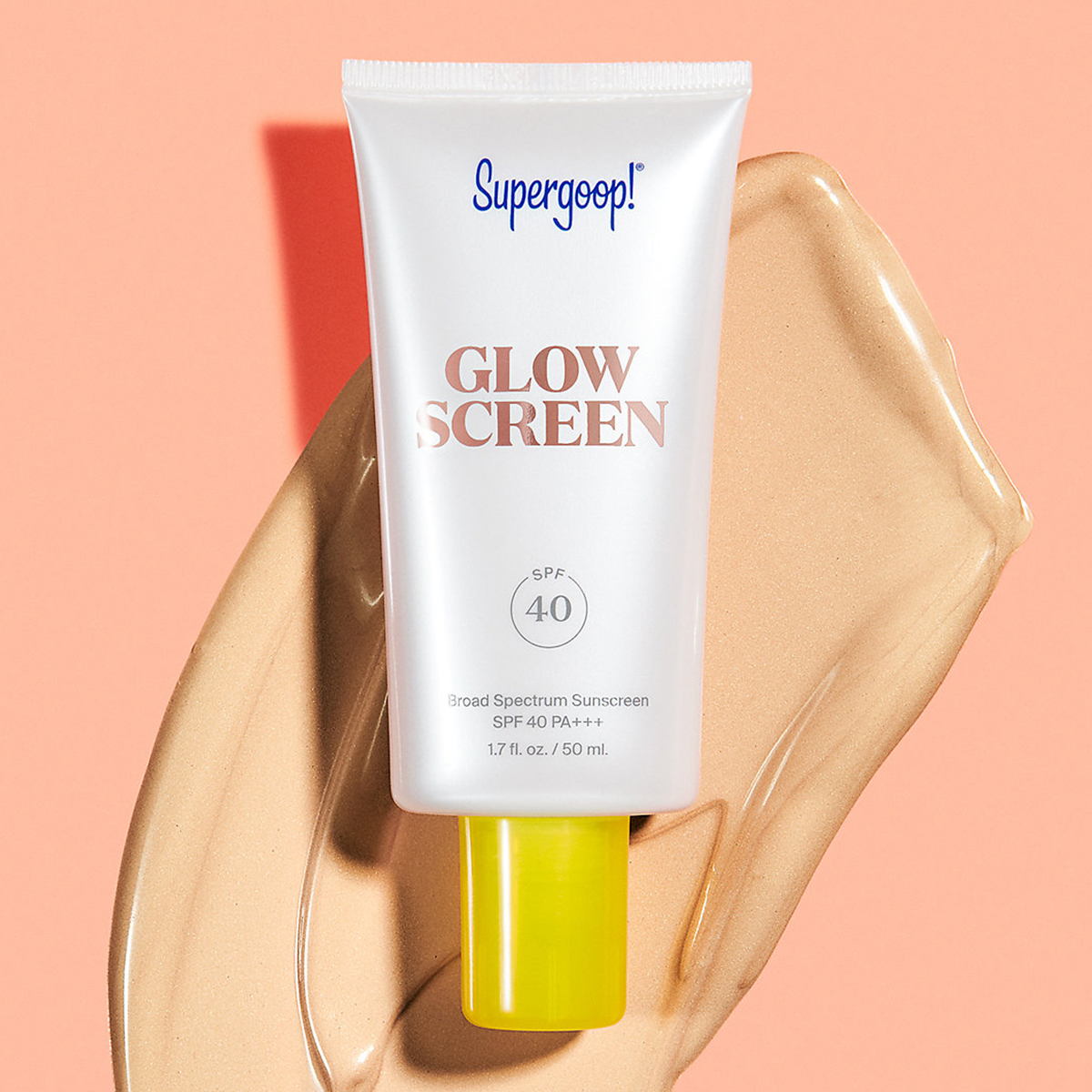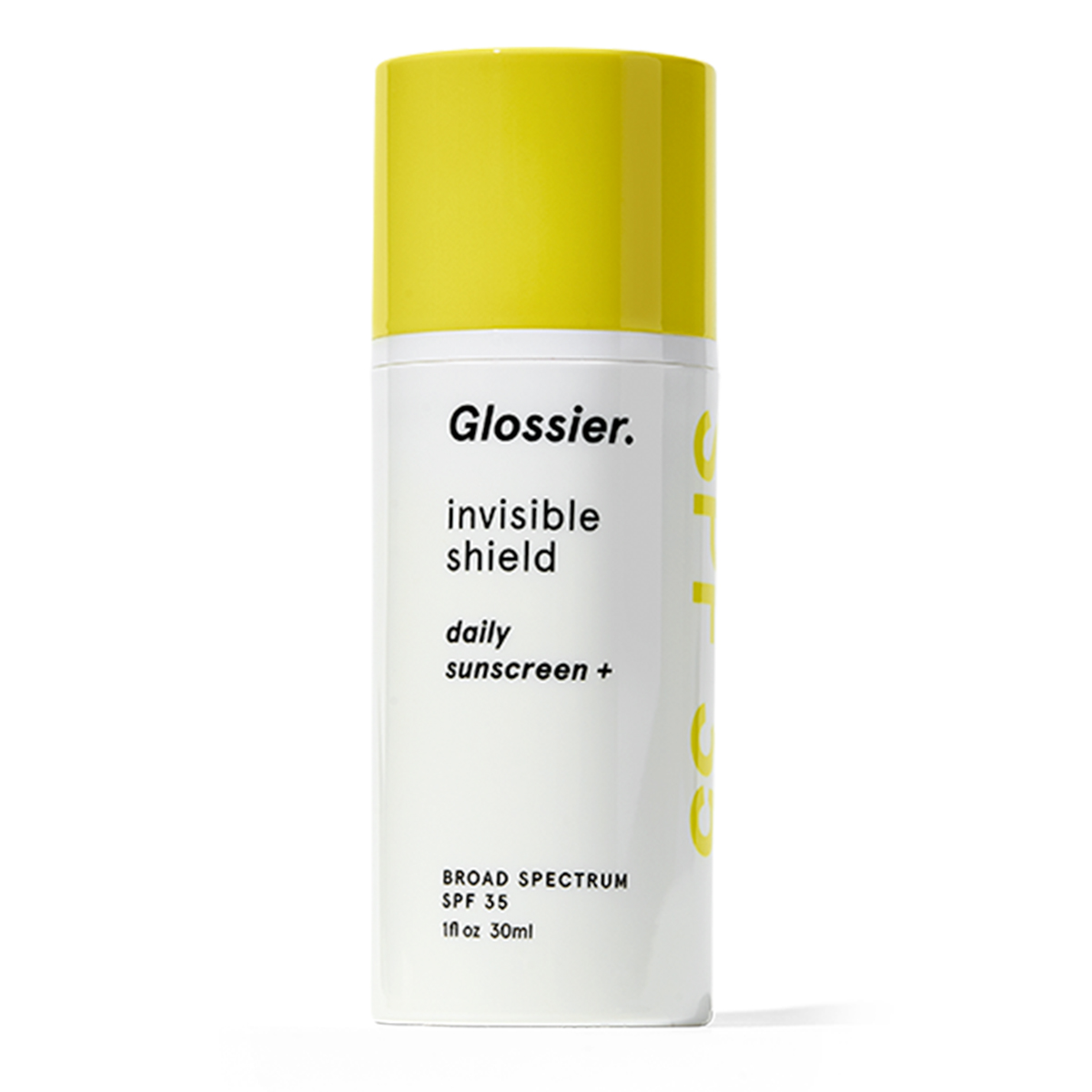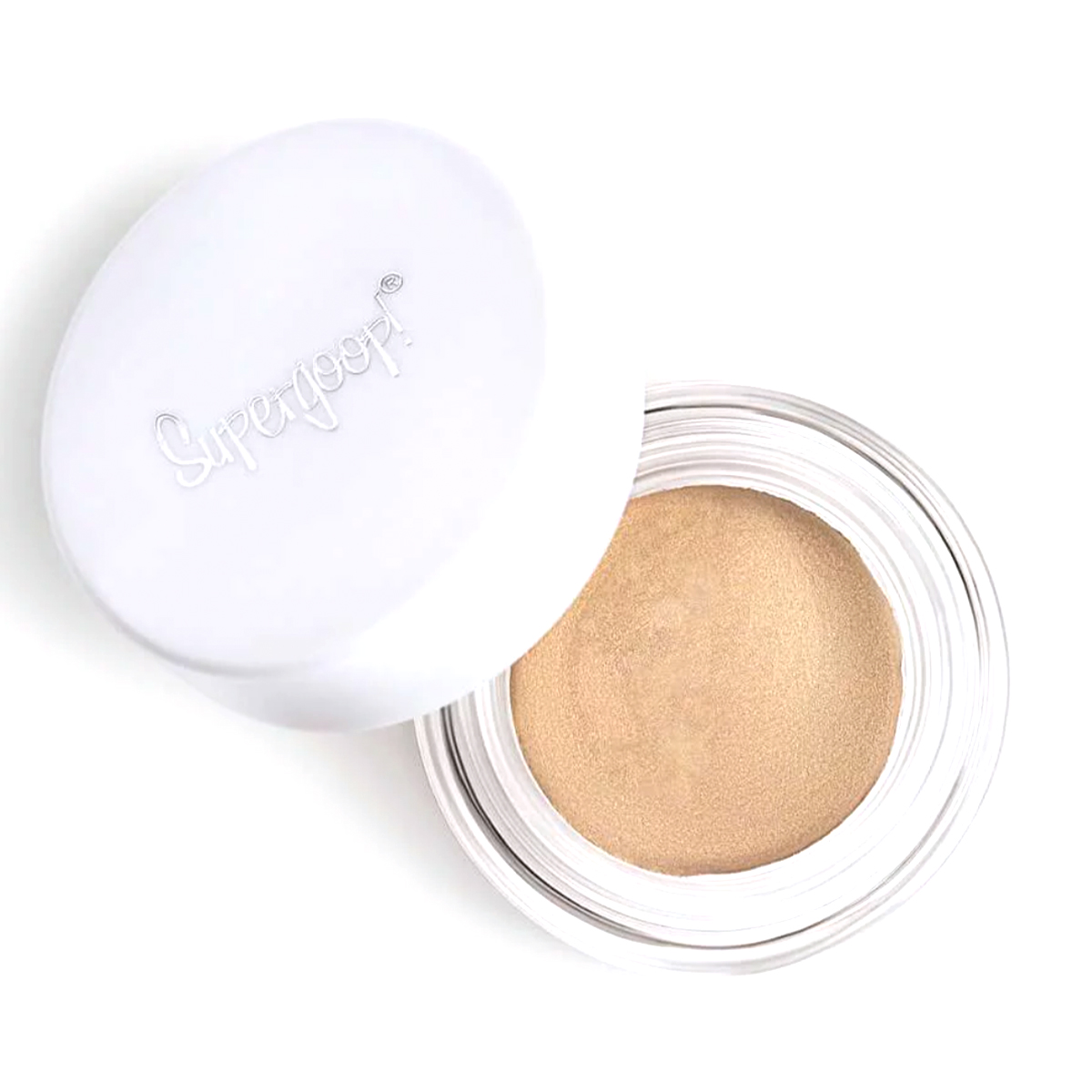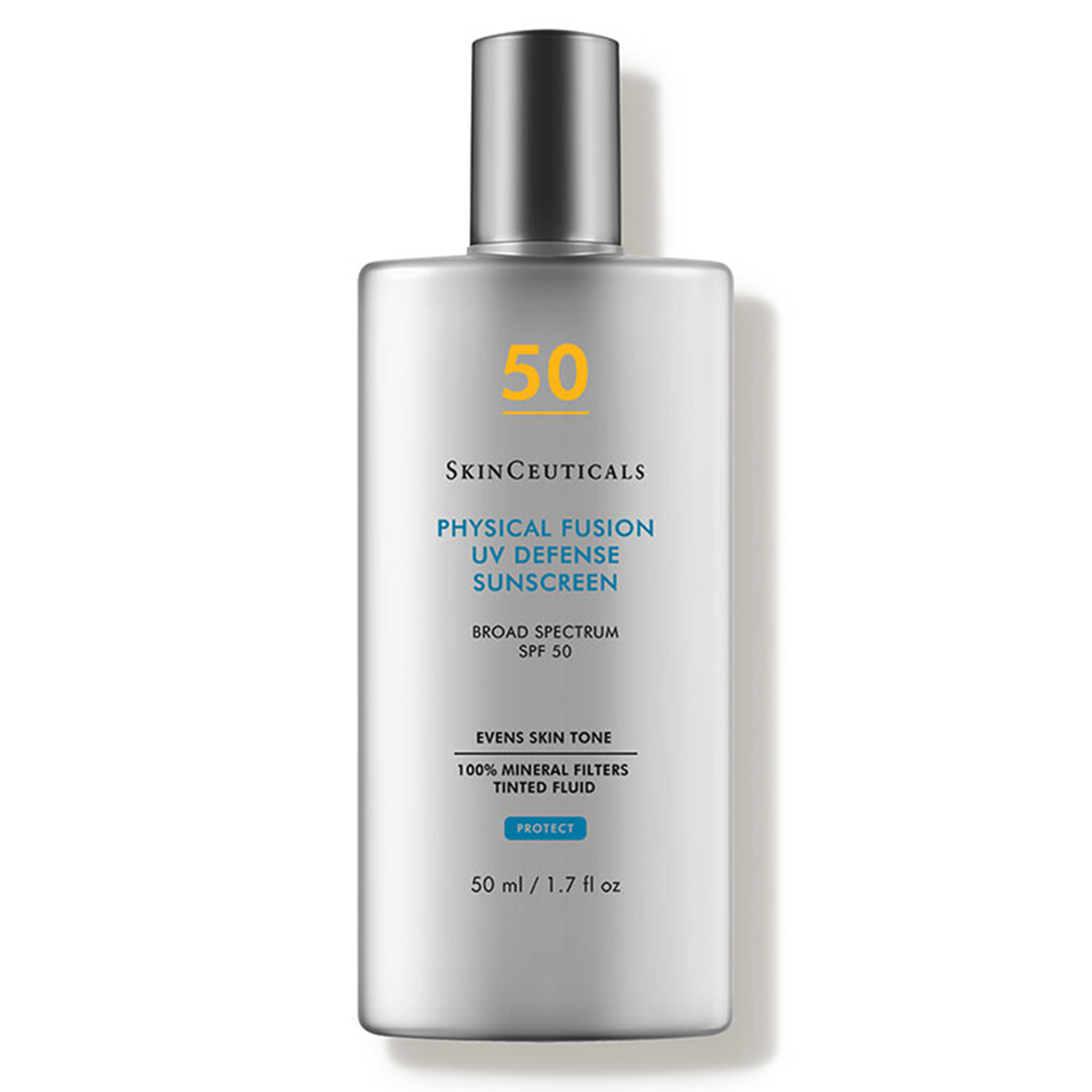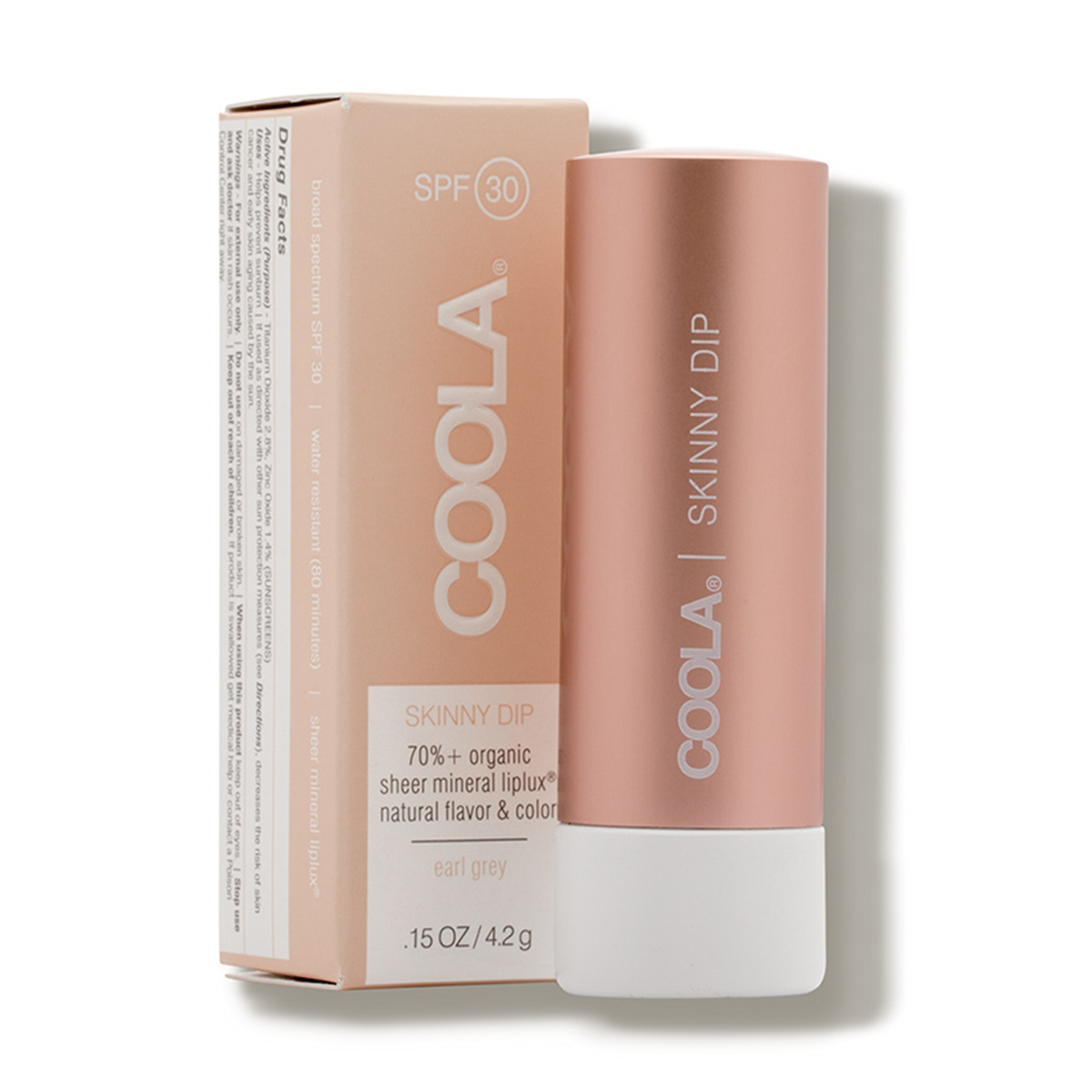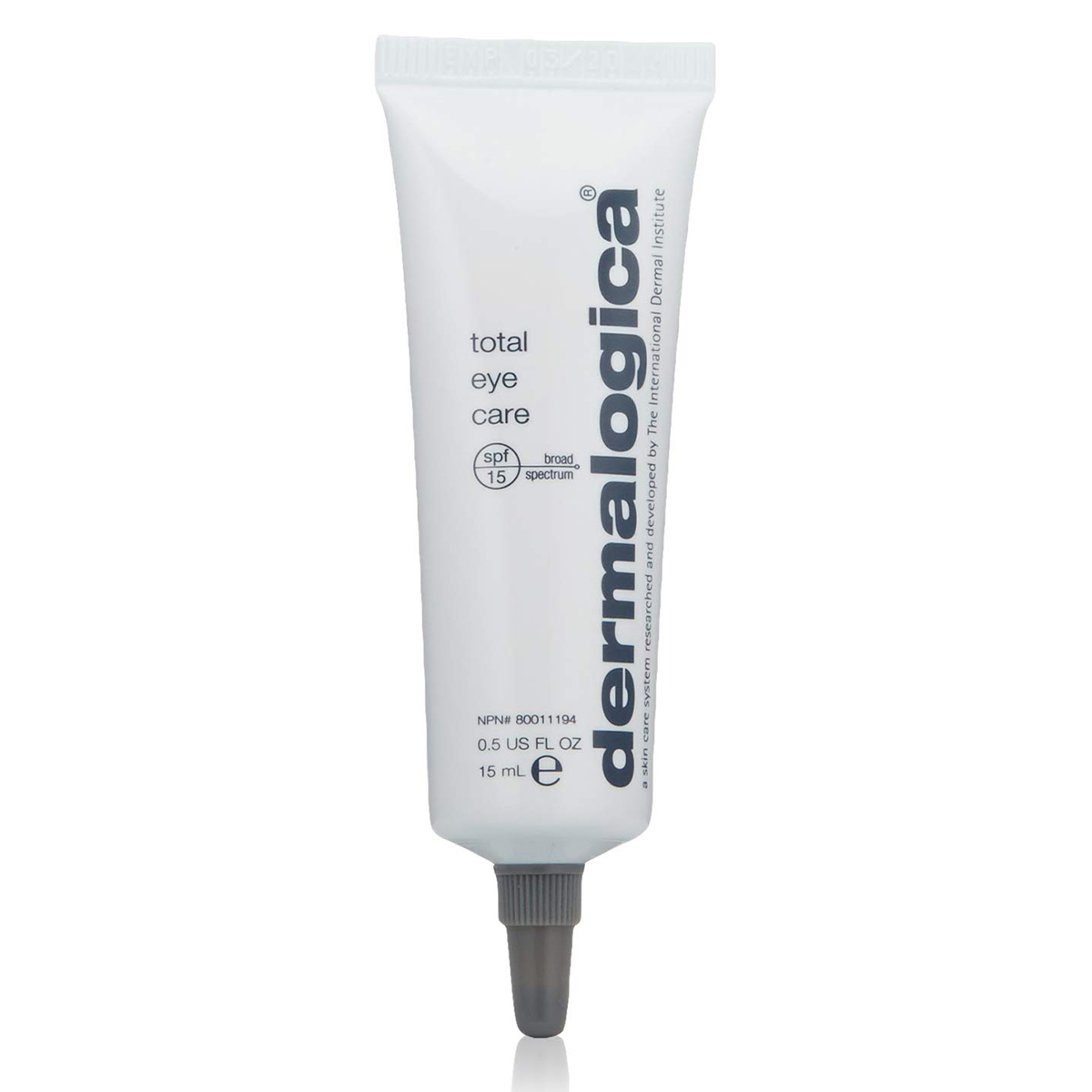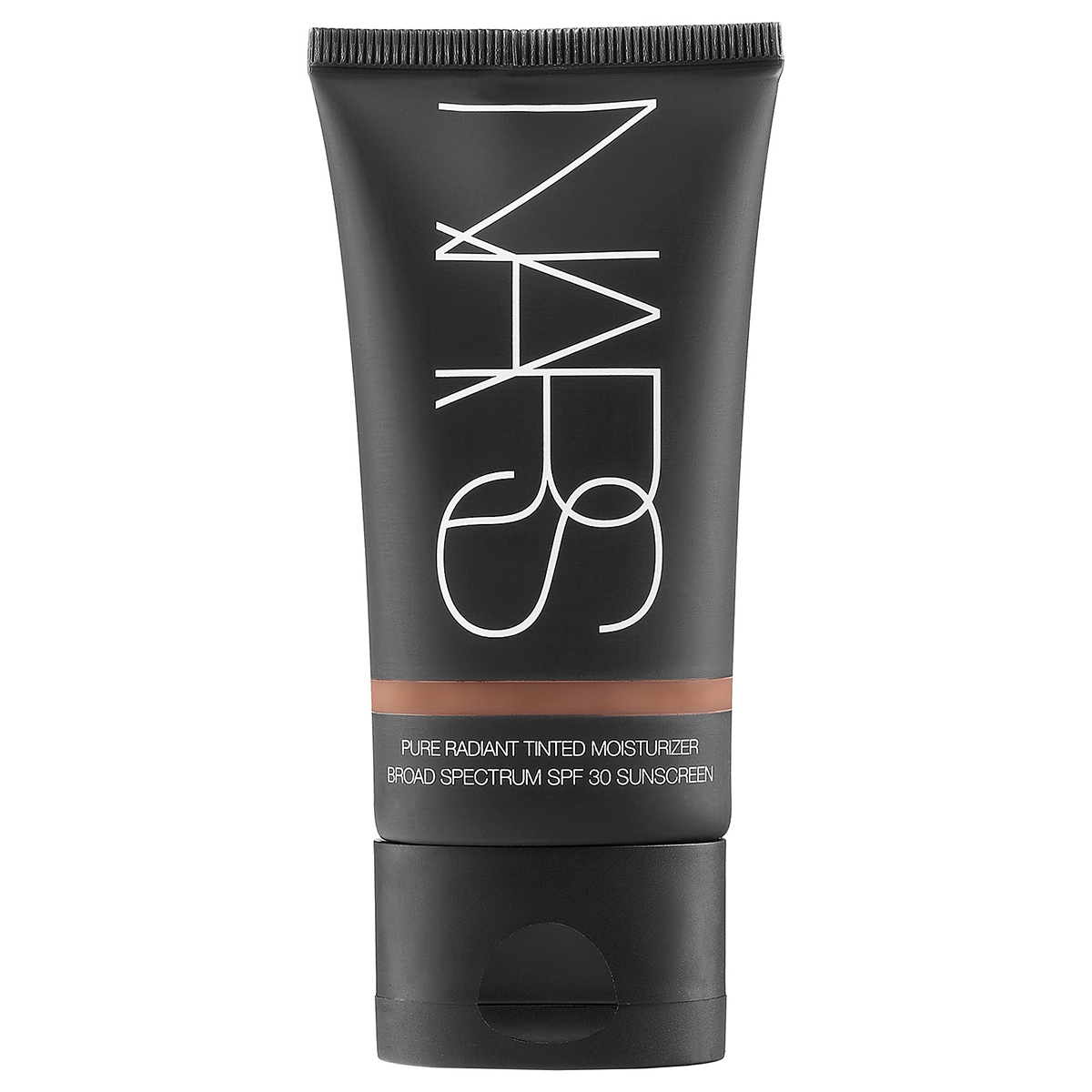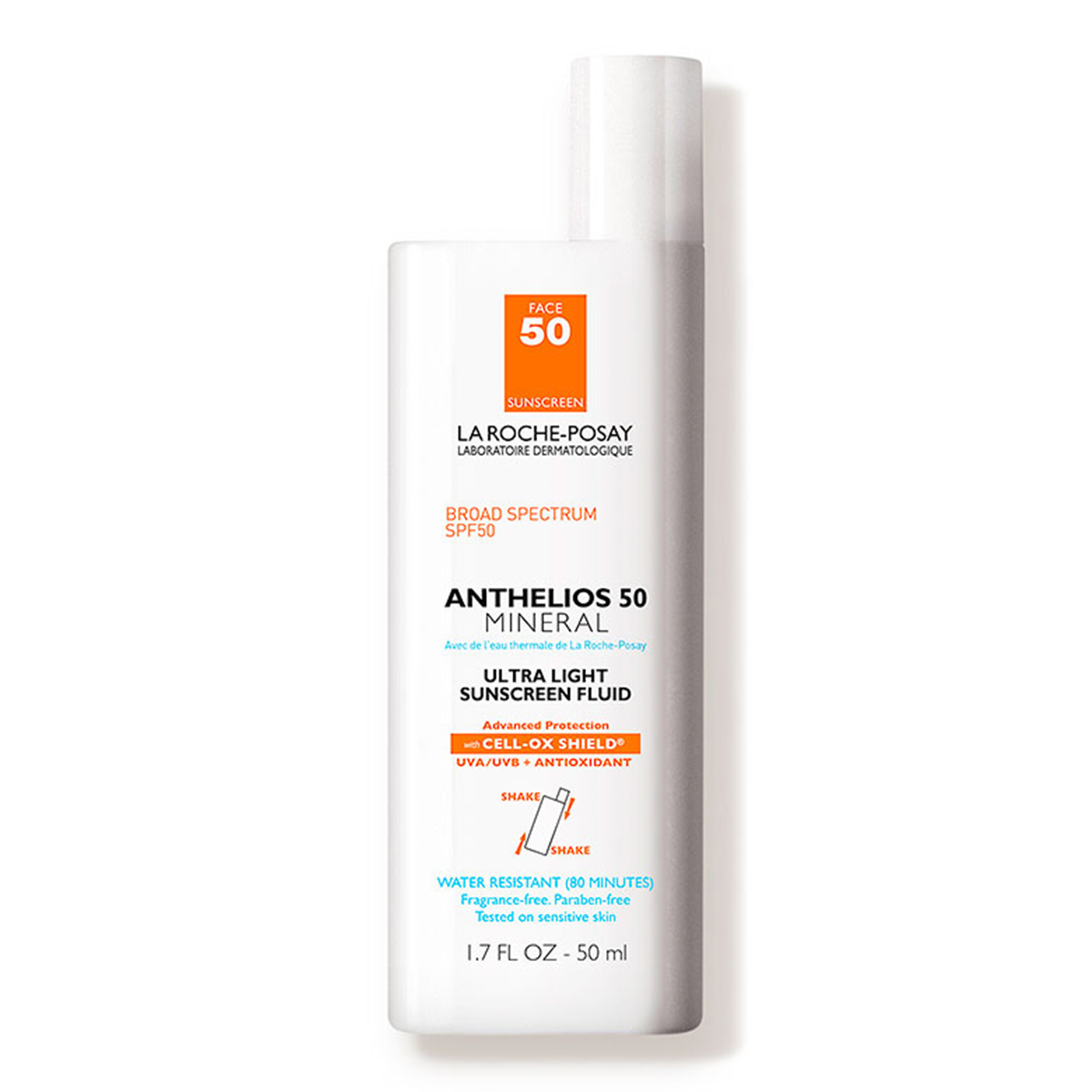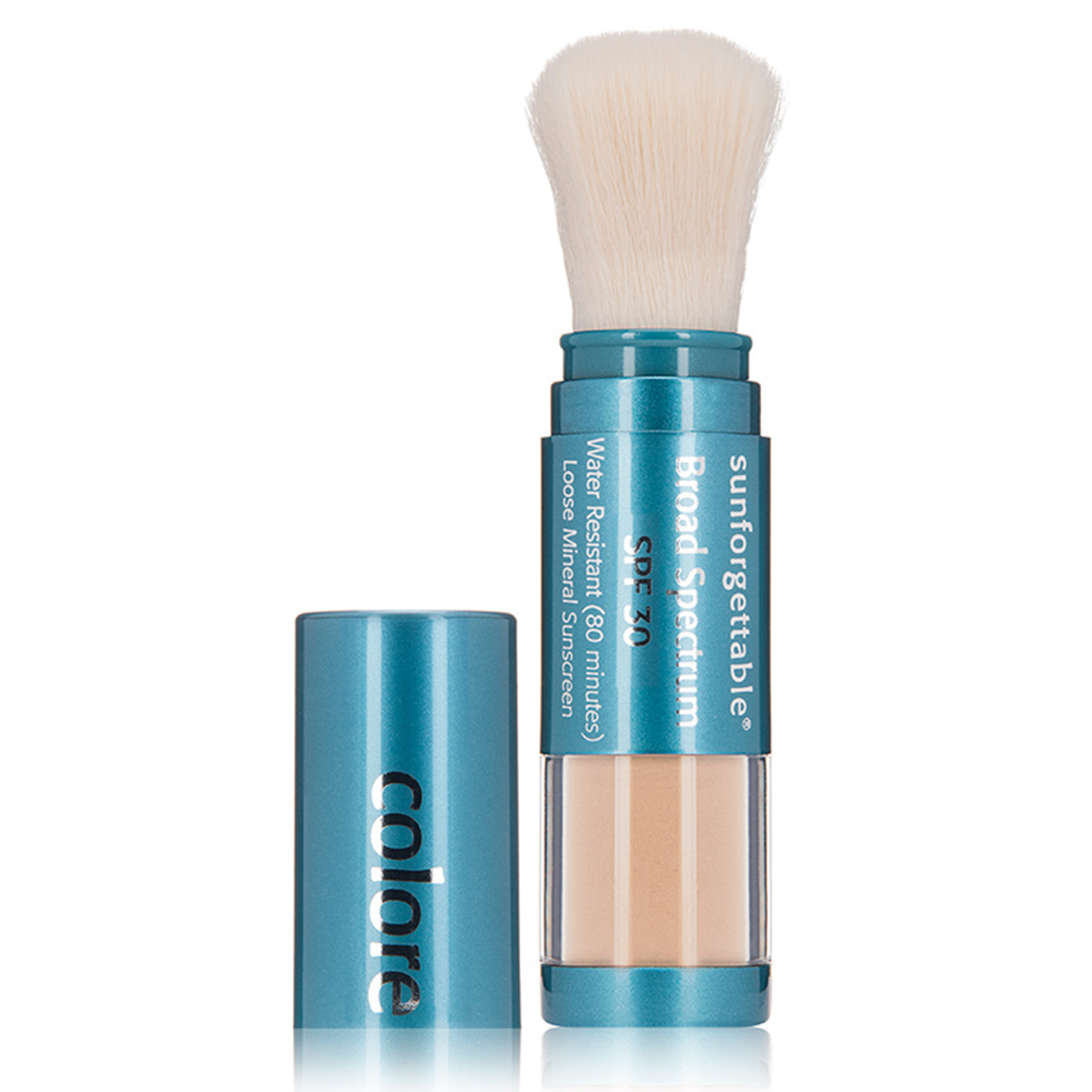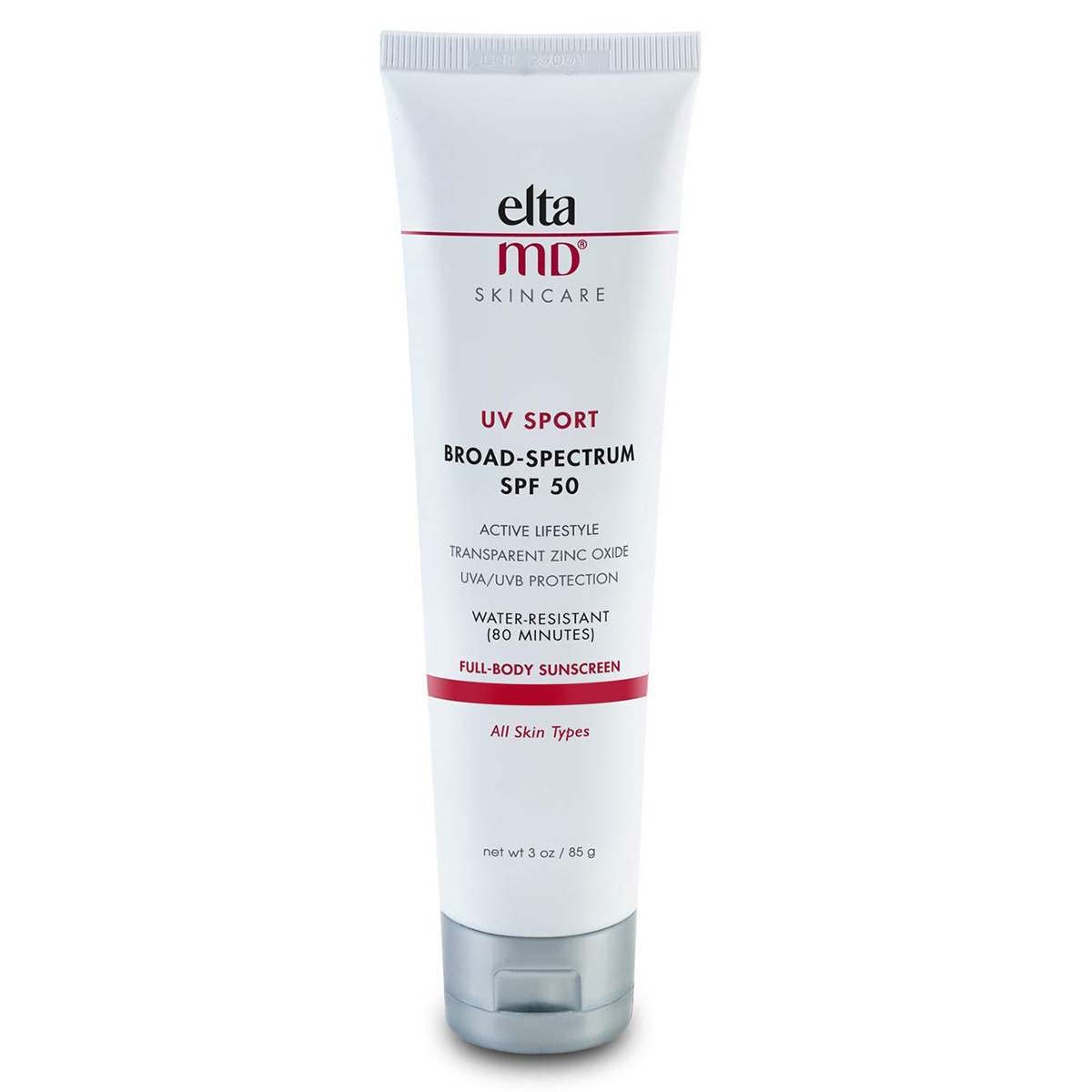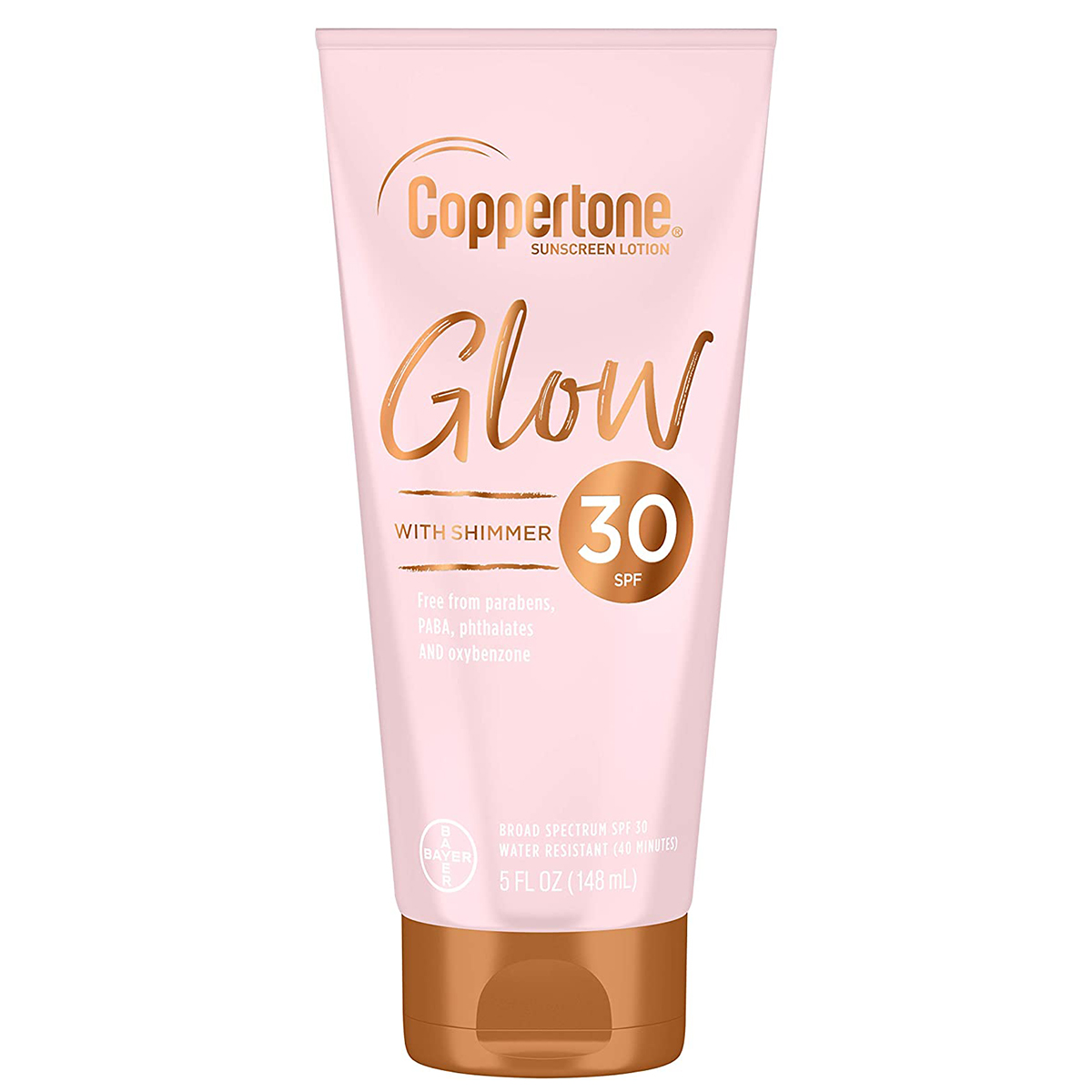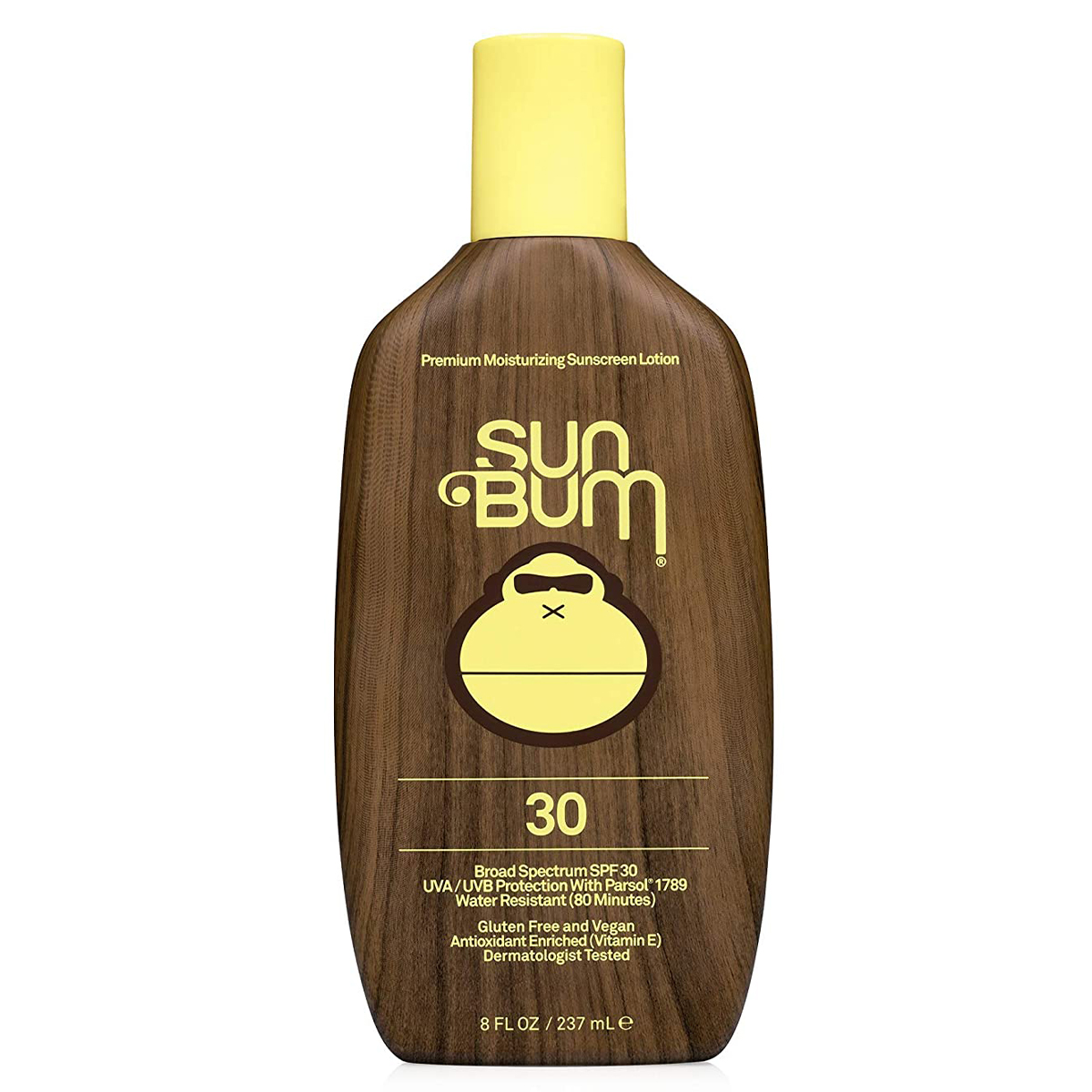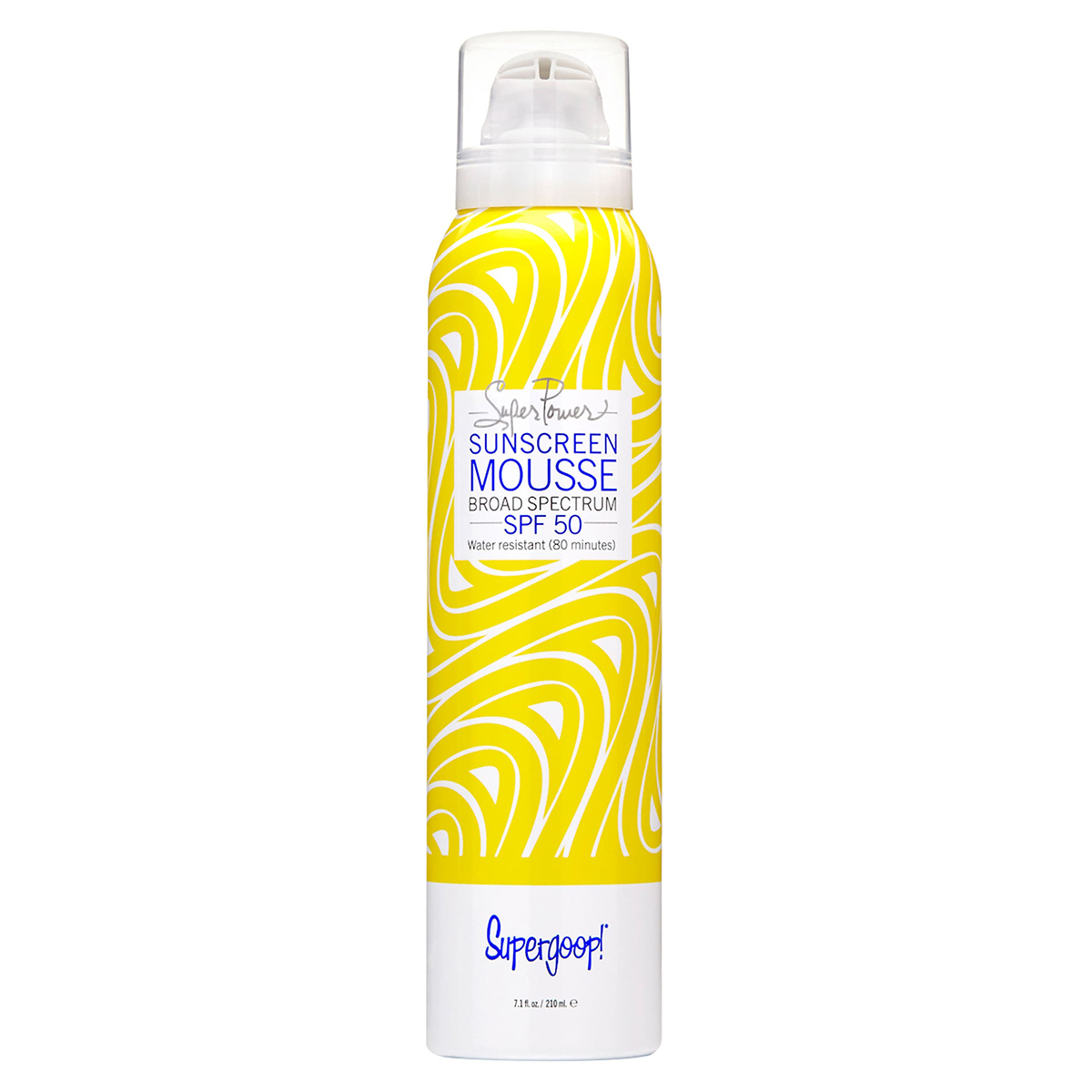I Credit Sunscreen for Making Me Look Younger—These Are My 18 Go-To Products

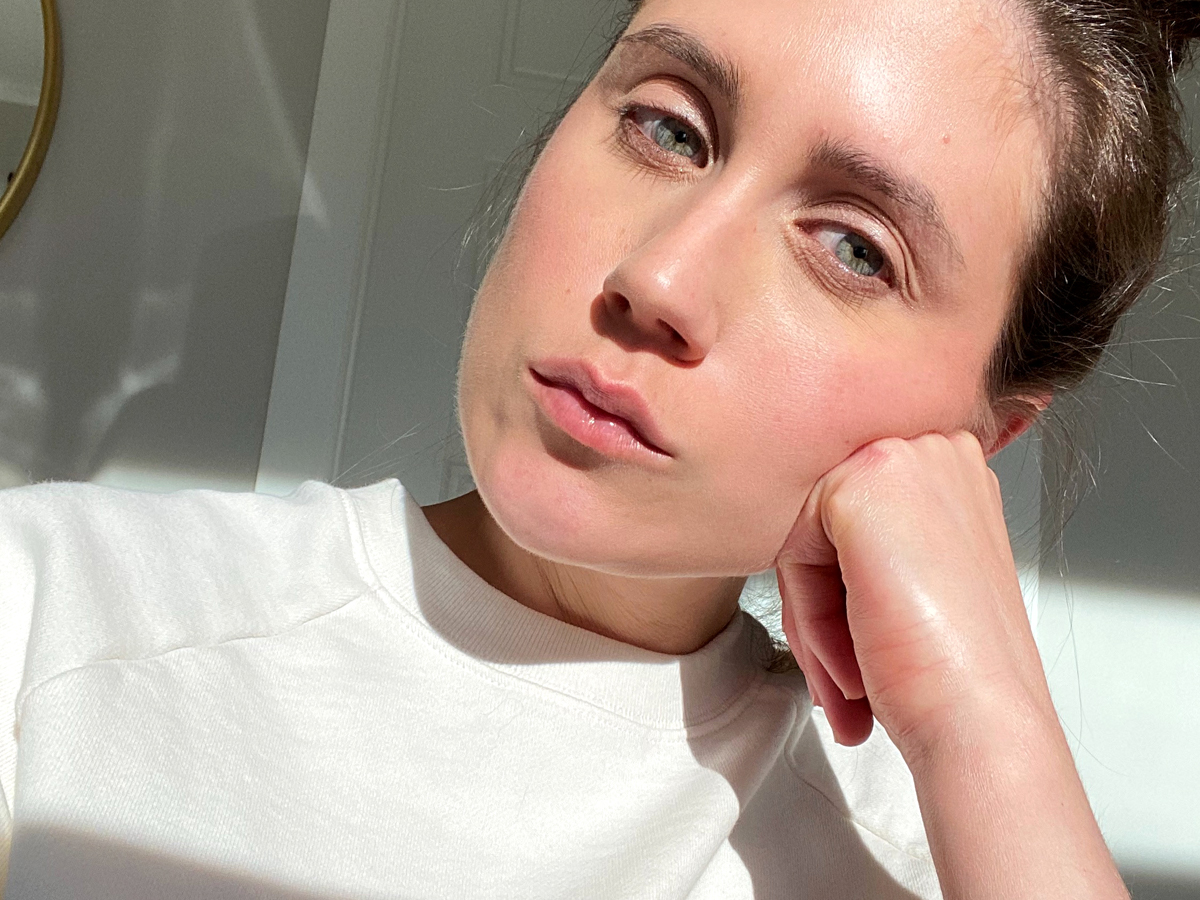
The sun and I aren't really friends. I always say that I'd be perfectly happy living somewhere with a gloomy climate like Seattle or London. Alas, I do not. While I've done a good job of avoiding the sun as much as possible over the years (save for some sunbathing lapses in judgment in high school), it's not entirely avoidable by any means. So I've armed myself with tools (i.e. sunscreens) to combat it on a daily basis, including cloudy days.
I'm now 35, but I quite often get comments about how young I look (that's me wearing Supergoop Glow Sunscreen above) and even get carded sometimes. I always say that my commitment to sun protection has a lot to do with it, but I'm not a doctor, so I spoke to one to get more intel on the link between anti-aging and sun protection. Nancy Samolitis, MD, is the co-founder and medical director of the popular Facile Dermatology in Los Angeles and has tons of insight about how the sun adversely affects your skin.
Samolitis confirmed the correlation between sunscreen and aging, telling me, "Damage from UV rays is the main culprit in the signs that we recognize as premature aging. The most common signs that I am referring to are wrinkles, dullness, brown spots, and uneven pigmentation. If you don't believe me, take a look at skin that doesn't get as much sun exposure like on the buttocks and tell me if you see any wrinkles and brown spots there." Good point.
Scroll for more of Samolitis's expert suncare advice and to shop the face and body sunscreens I swear by.
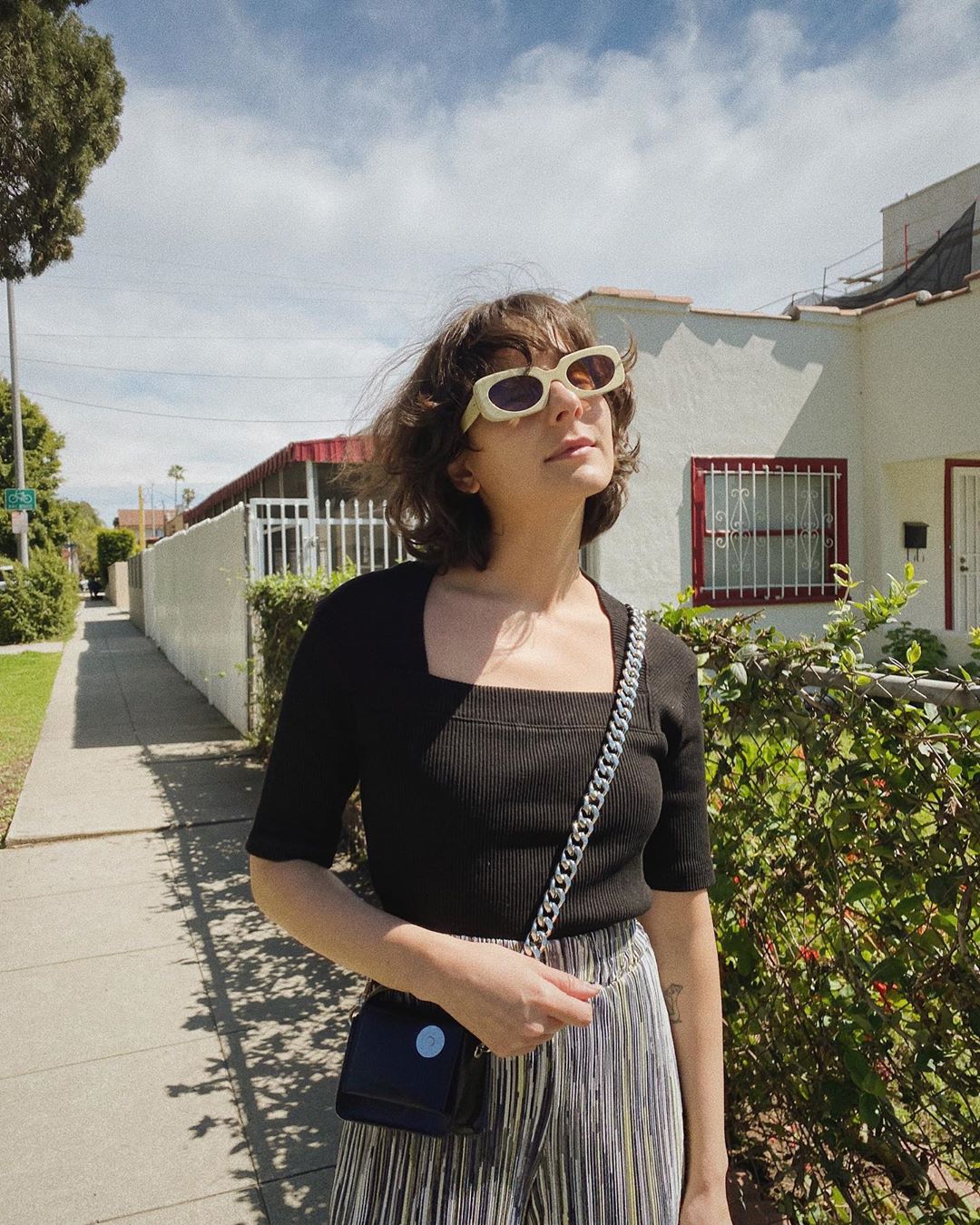
What's the ideal SPF number that people should be wearing on their faces on a daily basis?
The American Academy of Dermatology recommends an SPF of 30 or higher. This is based on scientific evidence that SPF 30 blocks a sufficient amount of UV light to prevent damage to the skin. Higher SPF numbers do block slightly more UV rays, and their effect may last longer. There is some controversy currently regarding the safety and efficacy of chemical sunscreens. In most products, a combination of these chemical sunscreens must be used in order to get a more complete UV protective effect. In contrast, zinc oxide and titanium dioxide (the mineral or physical sunblock ingredients) have more complete protection, so sunblock containing those ingredients is what I typical recommend to my patients.
Besides just not wearing it, what's the biggest sunscreen mistake you see people making?
Many people forget to reapply sunscreen. It is known that chemical sunscreen ingredients break down, so reapplication every few hours is necessary to maintain the SPF level. Zinc and titanium sunscreens do not break down, but can come off with sweating, swimming, or transfer to clothing, etc. People also often think that if they are wearing sunscreen, they can freely exposure their skin to the sun and they are "safe." This simply isn't true. Physical protection from the sun including being in the shade, avoiding direct sun exposure, and sun-protective hats and clothing will significantly reduce sun damage effects.

Can you speak to the importance of sunscreen use for women of all different skin tones?
The rules of sun protection apply to people of all skin tones. Although someone who burns easily and doesn't tan may initially be more motivated to apply sunscreen to avoid a painful, peeling sunburn, the signs of sun damage often show up more gradually on people with darker skin tones as uneven pigmentation and melasma. Skin cancers can also occur on people with any skin color and are definitely preventable with sun protection.
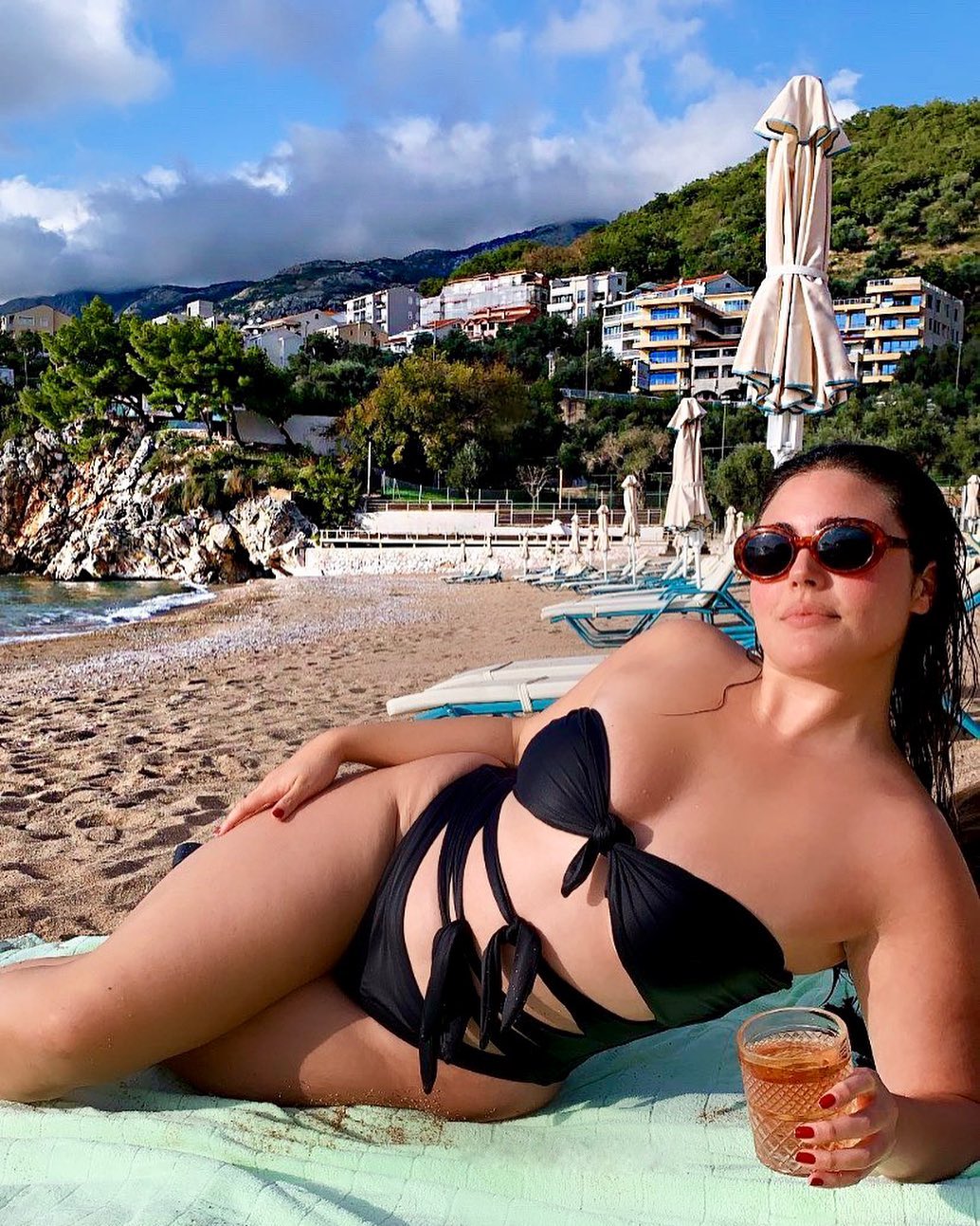
What are some products you recommend to help reverse damage caused by the sun?
There are many ingredients that have been scientifically proven to reverse signs of sun damage and even reverse UV related changes at the cellular level (meaning reducing the risk of skin cancer). Retinol is the most well-known ingredient that does this. One of my favorite retinol containing products is Sente Bio Complete Serum. This should be applied at night to maximize skin repair. Antioxidants such as vitamin C help to protect the skin against some of the oxidative stress that occurs with sun damage. I really like Facile's Easy C, which contains a potent combination of antioxidants. This should be applied in the morning, right before SPF is applied.
Shop My Favorite Sunscreens for the Face
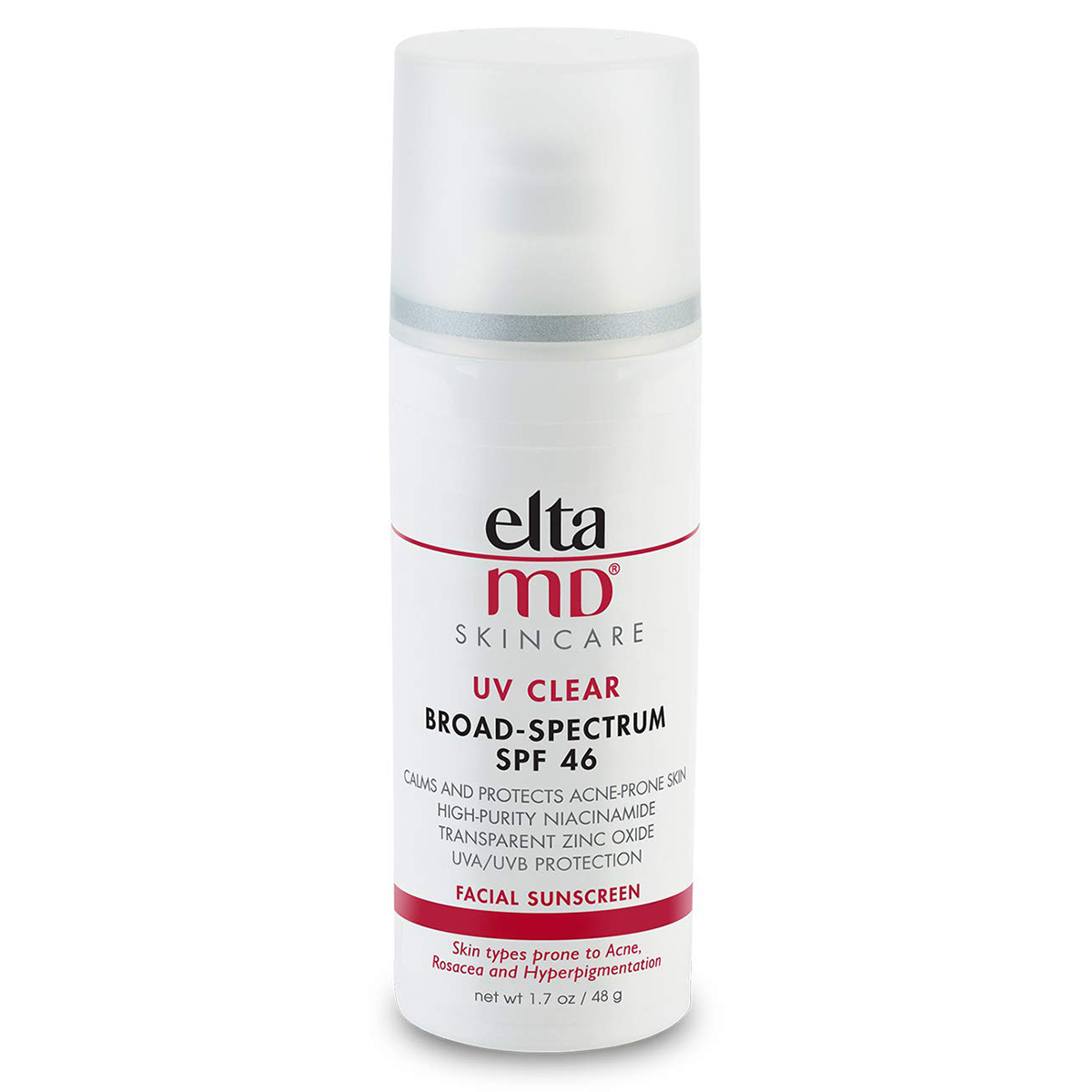
My mom first introduced this holy-grail sunscreen to me, and according to my Amazon account, I've purchased it nine times. The SPF is pretty high, but you wouldn't know it. It applies like a lightweight skincare product. I recommend this one to all of my friends.
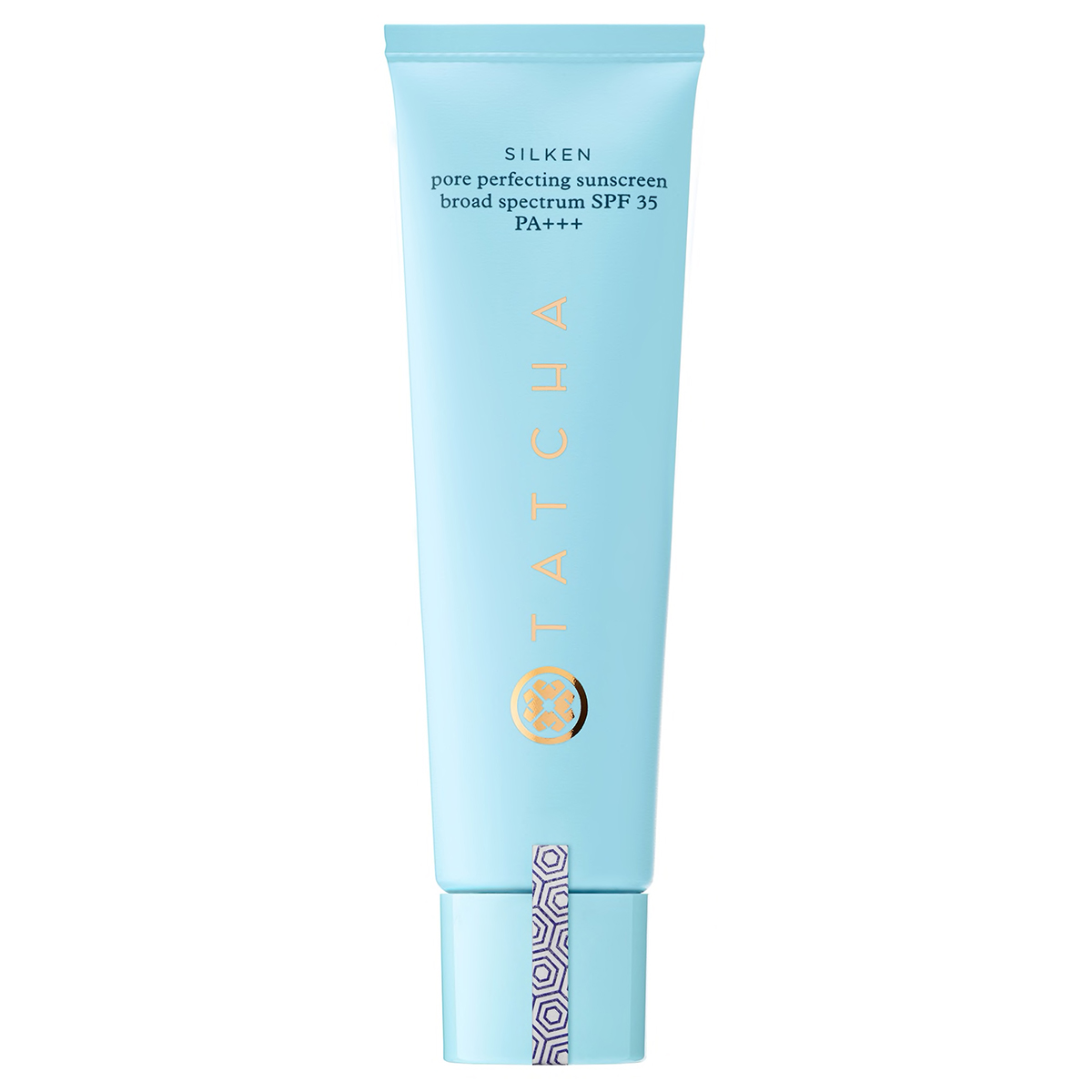
A luxurious option for sure, but all Tatcha products are worth the investment. If you want something that's going to leave a silky, matte finish under makeup, I highly recommend this. I fully plan on ordering a new tube as soon as mine is gone.
Shop My Go-To Body Sunscreens
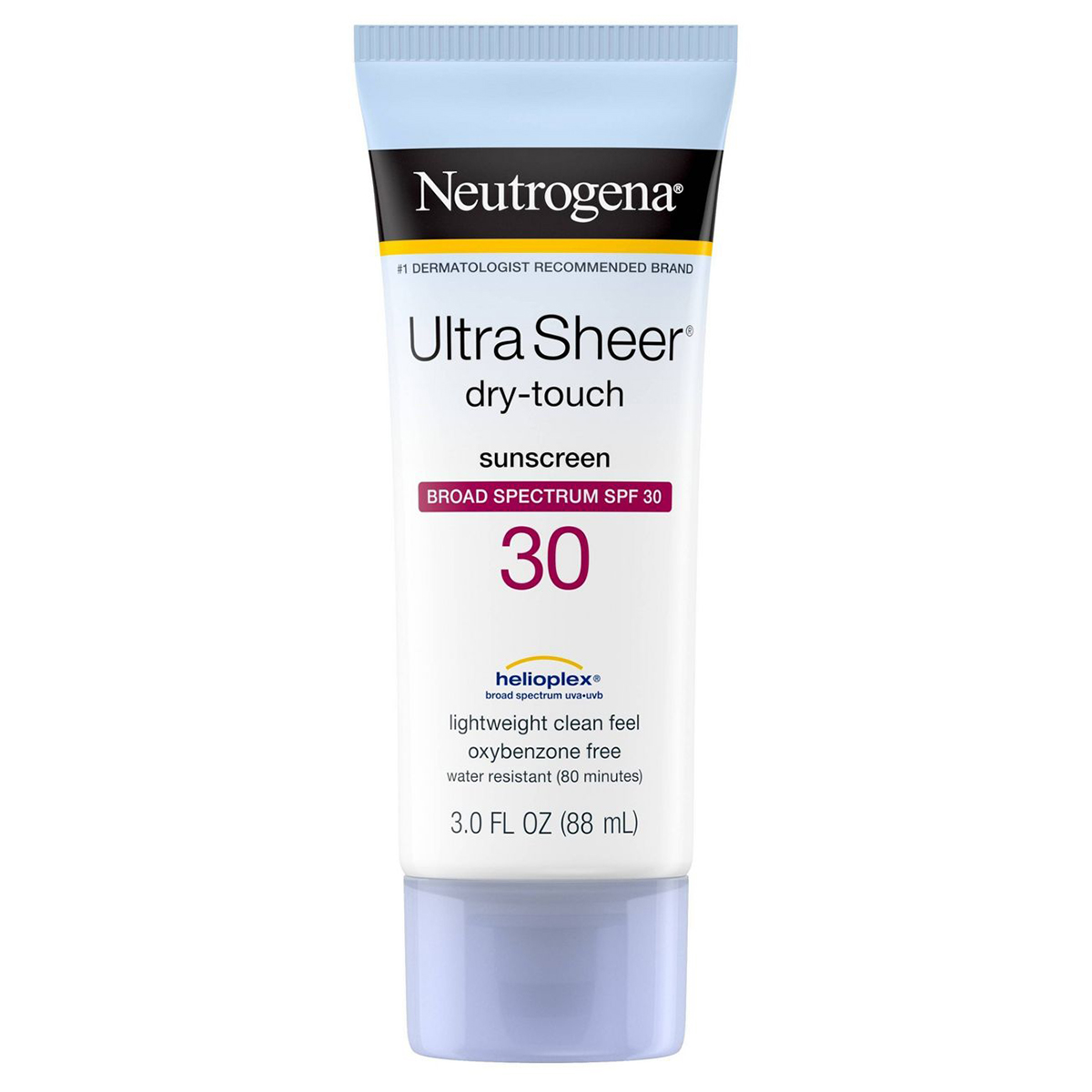
When I'm taking a trip that's going to include a lot of time in the sun, I prefer to pack a cheap sunscreen since I'll be applying a lot of it. I love that this one has a clean, non-sticky formula. It makes me forget that I'm covered in sunscreen.
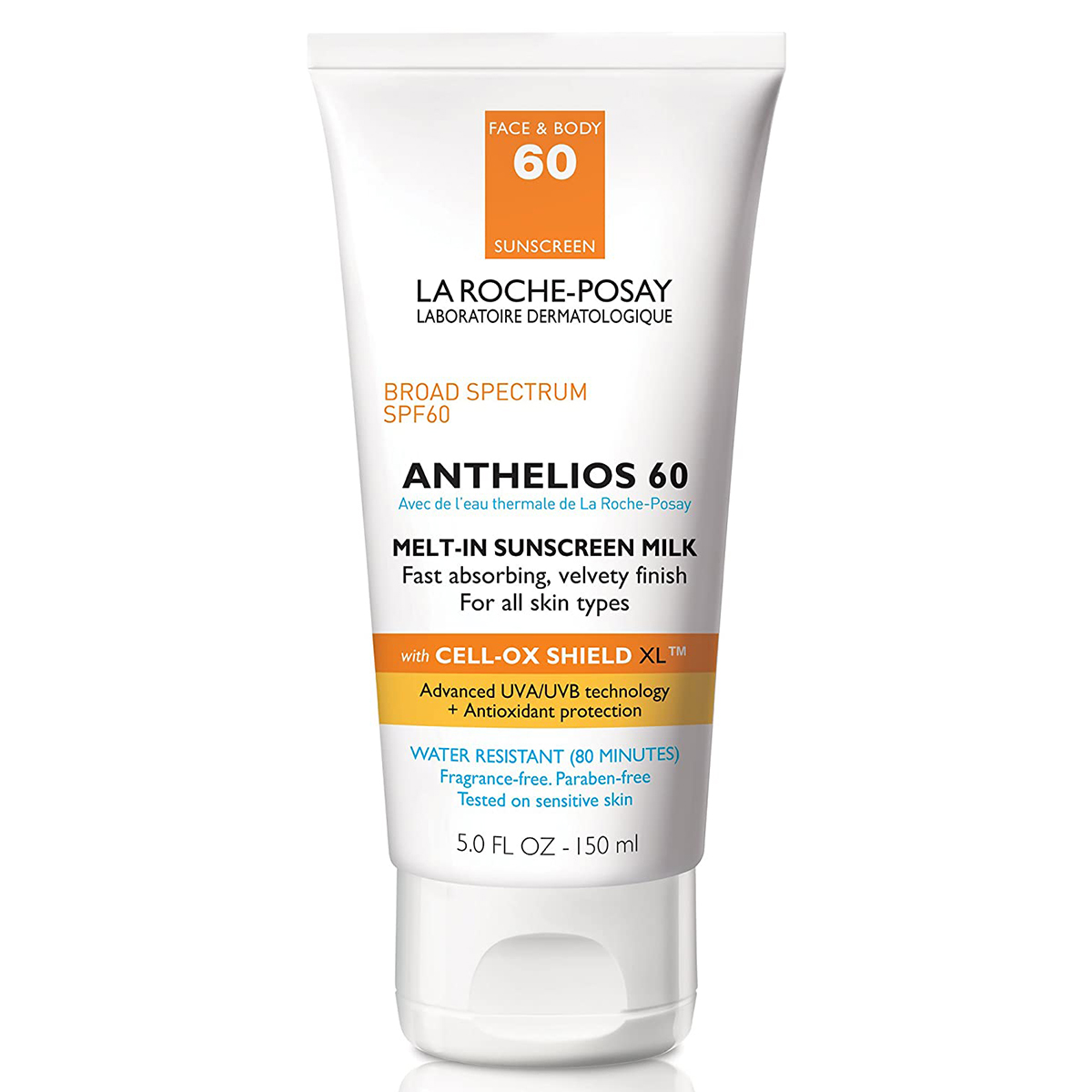
I was initially interested in this because I liked the name and the chic French tube, but after reading the incredible reviews and trying it myself, I can highly recommend it. Bonus points for being water-resistant, fragrance- and paraben-free, and safe for sensitive skin.
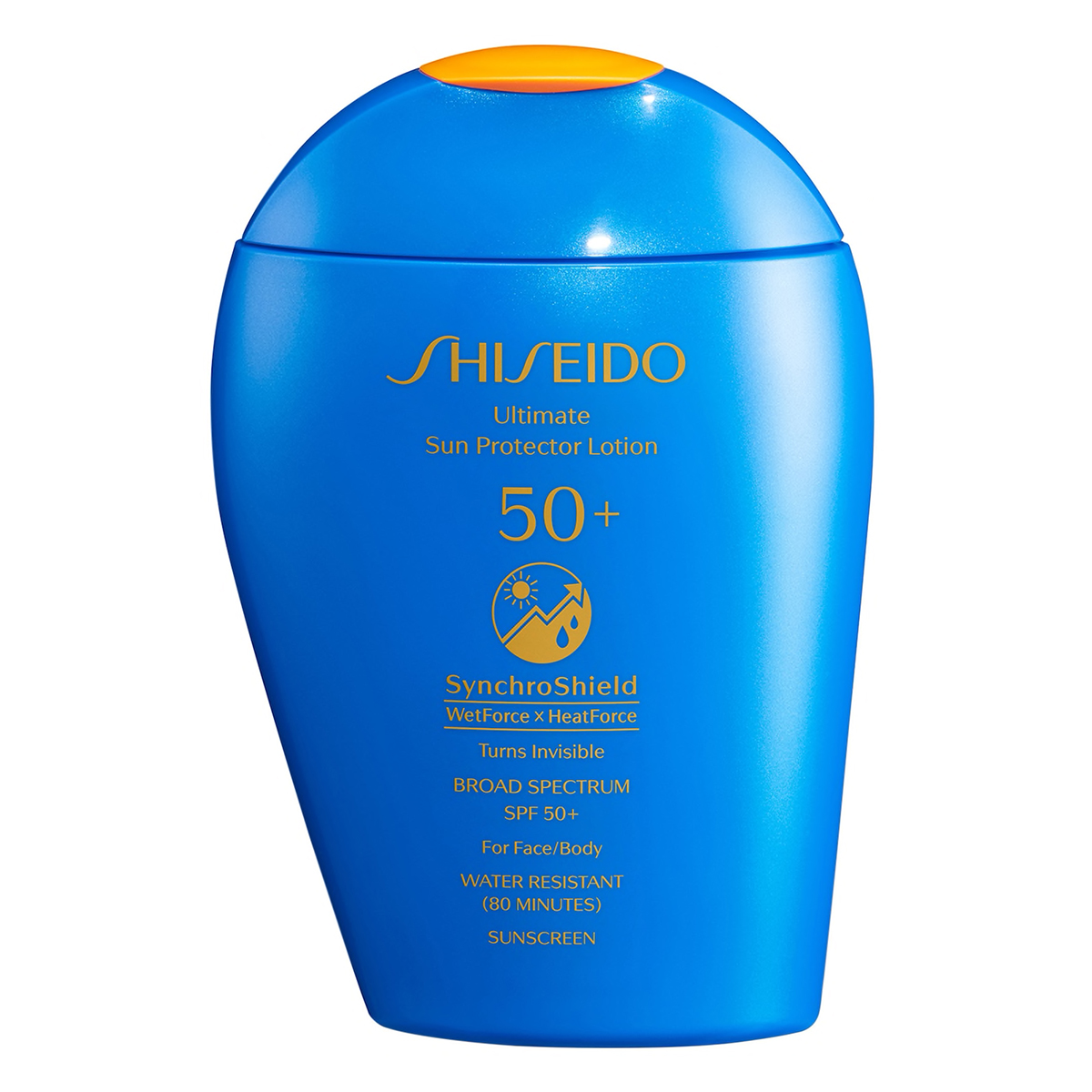
This high-tech option is pricey, but it's described as "an invisible sunscreen veil that becomes stronger when exposed to heat, water, and sweat." It contains HeatForce and WetForce technologies that add an extra layer of protection when activated by the sun and water. No wonder it's so highly rated.
Next up, the nine sunscreens dermatologists recommend for sensitive skin.
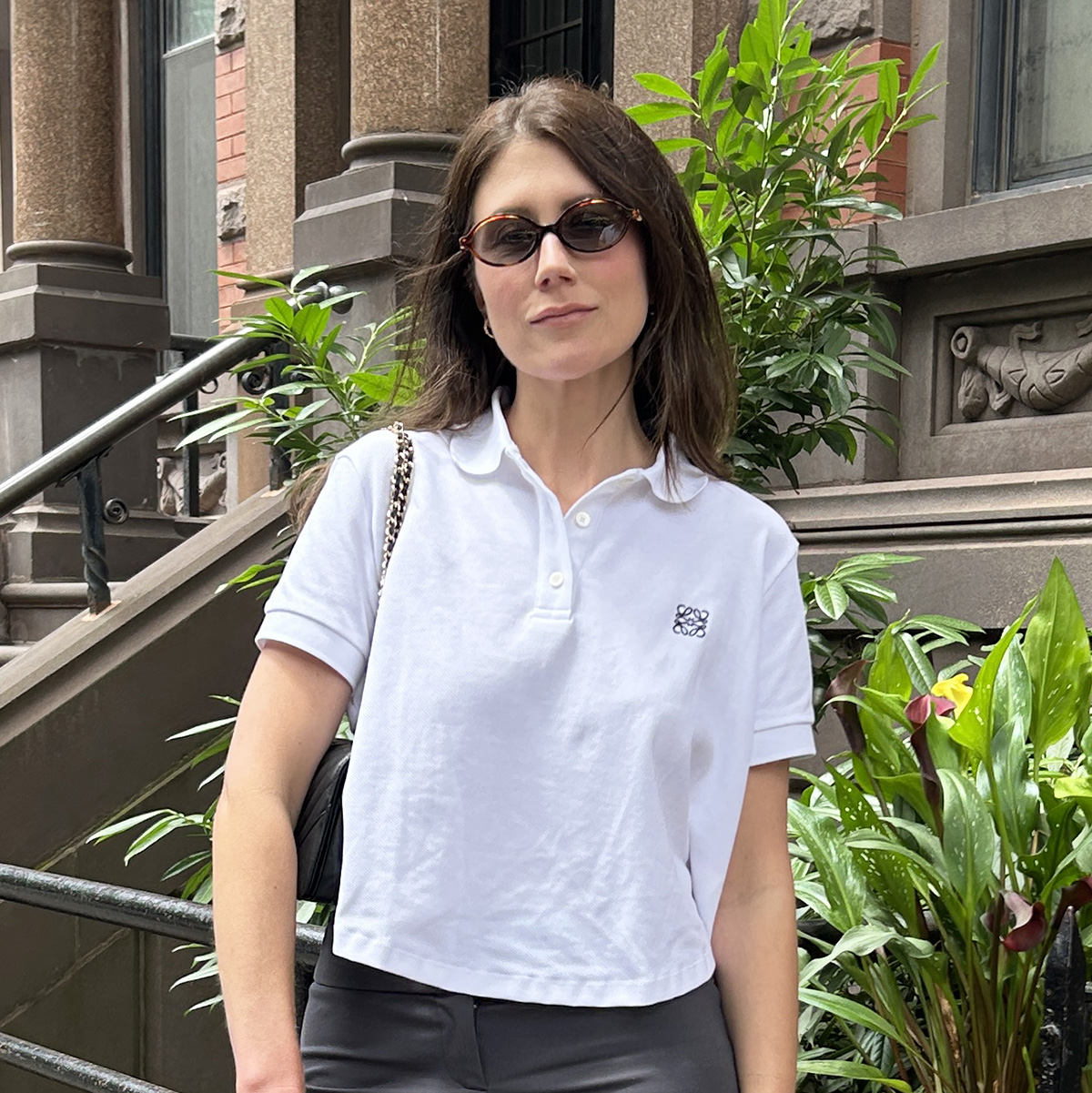
Allyson is a senior editor for Who What Wear. She joined the company in 2014 as co-founder Katherine Power's executive assistant and over the years has written hundreds of stories for Who What Wear. Prior to her career in fashion, Allyson worked in the entertainment industry at companies such as Sony Pictures Television. Allyson is now based in Raleigh, North Carolina, and is originally from Baton Rouge, Louisiana. She holds a BFA in theater arts. Her path to fashion may not have been linear, but based on the number of fashion magazines she collected as a child and young adult, it was meant to be.
